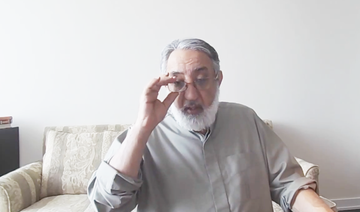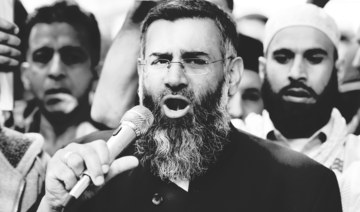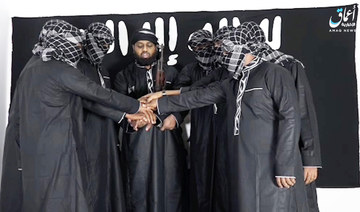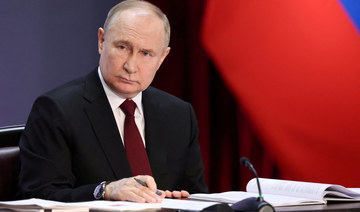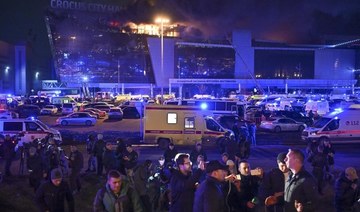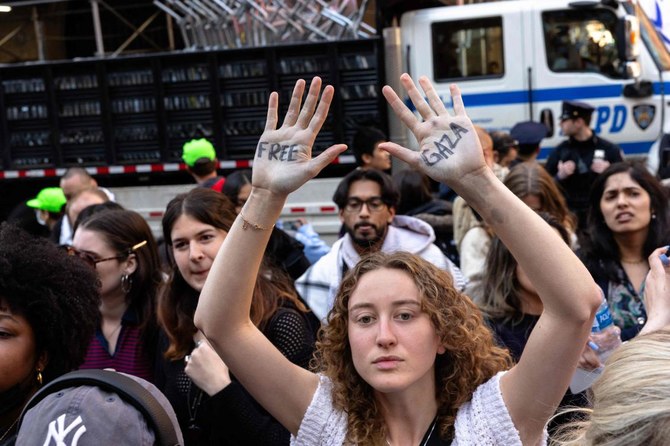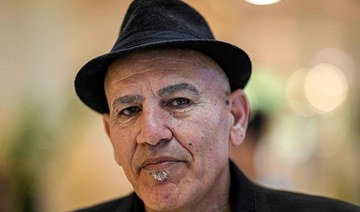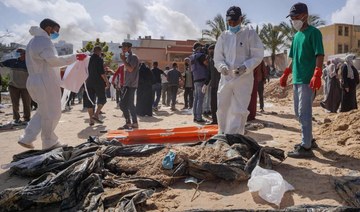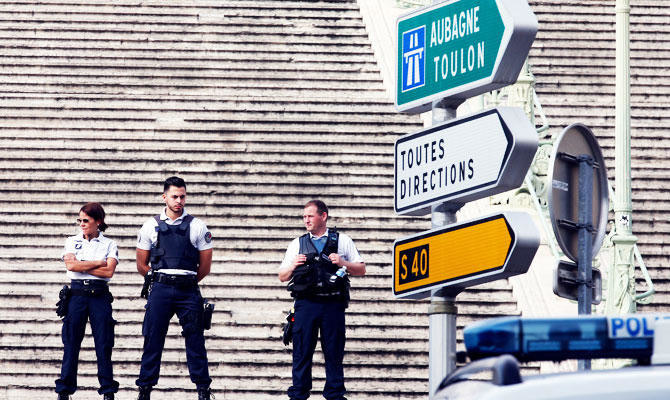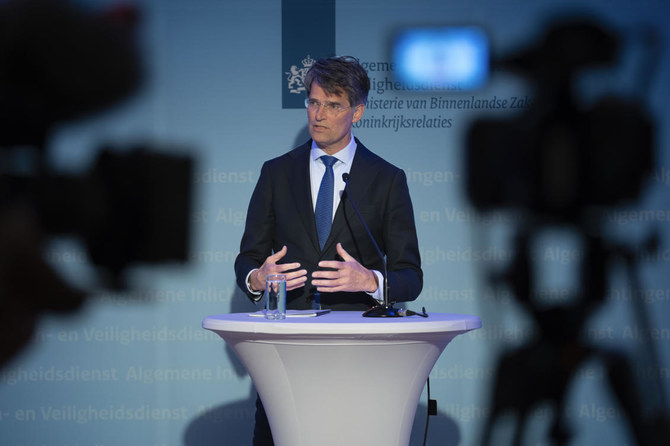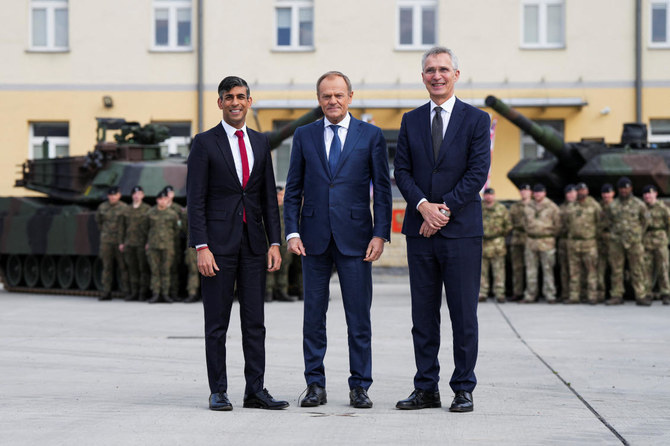She calls herself Kali, the goddess of death, and is a staunch advocate of Hindutva, a militant ideology that believes in the supremacy of Hinduism over all other religions in India.
Laxmi Dubey, 30, is one of the most popular singers of “saffron pop,” propagating Hindu majoritarian politics, which the ruling Bharatiya Janata Party (BJP) represents.
Some of her songs on YouTube have close to 50 million viewers. Her videos are filled with saffron imagery (the color of Hindutva politics), with Hindus wearing saffron robes, holding swords and dancing to her music. In one of her songs, she vows to kill anyone who gets in the way of building a temple for the “god” Ram.
The BJP has long been demanding such a temple in the eastern city of Ayodhya, in place of the Babri Mosque, which Hindus claim is Ram’s birthplace. Last month, India’s Supreme Court ruled in favor of building the temple.
Dubey’s songs are played at religious and political functions to arouse Hindu sentiment.
Niranjan Mukhopadhyay, a New Delhi-based political analyst and author of several books on Hindu right-wing politics, said: “Hindu nationalistic politics has grown on the clutches of popular culture.”
Dubey is a symbol of Hindu majoritarianism, which has become the defining feature of India’s polity and society. In one song, she describes those who do not hail Ram as traitors.
Such songs inculcate fear among Muslim and other minorities in India, amid fears that
BIO
Name: Laxmi Dubey
Nationality: Indian.
Place of residence: Bhopal, Madhya Pradesh, India.
Occupation: Hindutva pop star.
Medium: Songs, interviews, concerts, social media.
India’s secular credentials are being damaged. Those fears have been further heightened by last month’s Supreme Court ruling.
Senior journalist Pawan Pratyay said: “Saffron songs are used by Hindu fanatics during religious festivals to inflame passions, and at times it leads to religious violence.”
Dubey said that her aim in life is to serve Hindutva and use her music to propagate her religious ideology. “I want to see India as a Hindu nation,” she told Arab News.
Dubey believes that since independence in 1947, secularism in India has led to Hindus becoming subservient and victims of terrorism. Such a belief has driven Hindu extremism.
Dubey rose to prominence in the wake of Narendra Modi becoming prime minister in 2014.
She released videos supporting him, and campaigned for the BJP. In the 2019 video that she released just before the general election, she extols Modi as the savior of Hindus in India.
Opinion
This section contains relevant reference points, placed in (Opinion field)
“I’m with those who stand by Hindutva,” said Dubey, who advocates the expulsion of the Muslim population from the Kashmir Valley.
She says in one of her songs: “Kashmir is ours. We’re hardcore Hindus. We’ll create a new history. We’ll enter the enemy’s house and cut their hands.” Dubey supports the Indian government’s recent decision to abrogate Kashmir’s special status.
She abhors secularism, and says since neighboring Pakistan was created for Muslims, “India has to be a land of Hindus. India belongs to Hindus exclusively.”
She added that the country, “under Modi, is at the pinnacle of its civilizational history. He’s a man of history. He’s a realization of the dream of our ancestors who always wanted India as a strong nation.”
Mukhopadhyay said: “The BJP uses people like Dubey … to widen its mass support base. This has been done in the past, and it’s being done now.”
He added: “The hatred that she propagates through her songs is directed only toward Muslims. Only Muslims are others. Dubey’s videos are in tune with the larger strategy of majoritarian politics.”
Historian and political analyst Aditya Mukherjee, who is a professor at Jawaharlal Nehru University in New Delhi, said more needs to be done to counter such hatred. “Police should take action against people like Dubey for spreading venom in society.”
He added: “Civil society and concerned citizens should come forward to save society from attacks that threaten to tear apart its religious fabric.”




